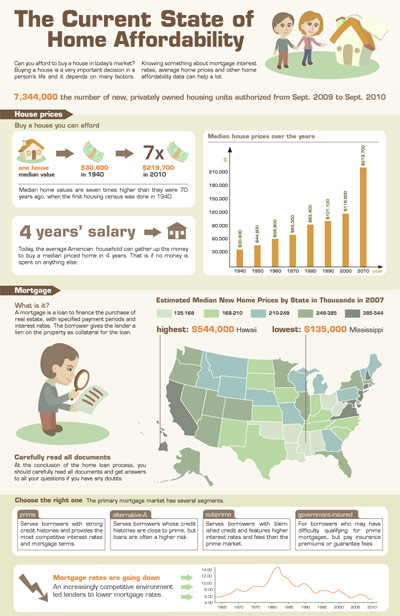For the past few weeks I've been sharing the stories of some extraordinary people, folks who earned average incomes, but still found a way to retire wealthy. I called the series, “Retiring Wealthy On An Average Salary“. I've found writing the series to be quite inspirational for me, and it really gives me hope to realize that you don't have to be mega-rich or make a humongous salary in order to save enough for retirement.
Today I want to do something a little different. I want to look at one family that did everything wrong in order to lose a fortune of over 10 million dollars in less than 10 years.
From Millions To The Verge Of Bankruptcy
59 year old Nick Martin teaches grape growing and winemaking at a local community college, and his wife and their two children now try to get by living in a modest rental home on a combined $34,000 a year. They aren't living the high life, but it wasn't always this way. In 1998 Nick received a $14 million dollar inheritance, $10 million dollars after taxes. What did he and his family do with their newfound wealth? They did what so many folks who find sudden wealth do, they started to spend their money with wild abandon.
Grateful to have found work in this tough economy, Nick Martin teaches grape growing and winemaking each Saturday to a class of seven students in a simple metal building here at a satellite campus of Highland Community College.
Then he drives 14 miles in an 11-year-old Ford Explorer to a sparsely furnished tract house that he rents for $900 a month on a dead-end street in McFarland, a smaller town. Just across the backyard is a shed that a neighbor uses to make cartridges for shooting the prairie dogs that infest the adjacent fields.
It is a far cry from the life that Mr. Martin and his family enjoyed until recently at their Adirondacks waterfront camp at Tupper Lake, N.Y. Their garage held three stylish cars, including a yellow Aston Martin; they owned three horses, one that cost $173,000; and Mr. Martin treated his wife, Kate, to a birthday weekend at the Waldorf-Astoria, with dinner at the “21” Club and a $7,000 mink coat.That luxurious world was fueled by a check Mr. Martin received in 1998 for $14 million, his share of the $600 million sale of Martin Media, an outdoor advertising business begun by his father in California in the 1950s. After taxes, he kept about $10 million.
But as so often happens to those lucky enough to realize the American dream of sudden riches, the money slipped through the Martins' fingers faster than they ever imagined.
They faced temptations to indulge, with the complexities and pressures of new wealth. And a pounding recession pummeled the value of their real estate and new financial investments, rendering their properties unaffordable.
The fortune evaporated in little more than a decade.
Autopsy On The Demise Of A Fortune
So how did the Martin family blow through almost $10 million dollars in less than a decade (almost $1 million a year)? They did exactly what you probably shouldn't do when you have new found wealth. They went out and started spending money. They bought a home in England, and a summer lake home in the Adirondacks. They bought cars, horses, and other luxury items. When Mr. Martin's novel that he was writing failed miserably, the family's living expenses and situation in England started becoming too pricey, and they moved back to the states. The first thing they did was buy a $650,000 home in Vermont. At the same time they were doing extensive renovations on their lake property with hopes of having that become a family legacy to pass on down to their children. The problem? The renovation costs quickly ballooned to the point where they spent over 5 million dollars on it. All of this was just as the economy had started on it's downward slide.
By March 2007, the Martins were determined to move to the lake full time.
They managed their expenses for a while, but the costs mounted and mounted some more as they worked at refurbishing the Adirondack property — eventually totaling a staggering $5.3 million, Mr. Martin said. He poured another $600,000 into the Vermont property, he said.
He vacillates between blaming the builders and blaming himself for letting costs get out of hand. “We should have built something quite modest,” he conceded.
Tensions rose in 2007 as summer came without any offers for the Vermont home.
“I thought that housing was going into a tailspin,” he said. “I had the feeling that something bad was happening.”
So “we started selling cars, shotguns, antique furniture, whatever,” Mr. Martin said. The Aston Martin fetched $395,000.
By the time they were done selling things, they were still in a huge hole, and they were having trouble trying to sell their real estate holdings, the things that they had spent the most money on. Why? they had probably over-built their lake home in an area that couldn't sustain it. Their lake home was on the market for just over 4.9 million, and then slashed to 2.5 million. Neither price got any bites, although one buyer did offer just under half of the 2.5 million. And since Mr. Martin wasn't making much money at this point either – compared to in the past – they weren't able to keep up on mortgage and tax payments. They ended up basically broke.
Though he faulted the conventional wisdom of investing in stocks and real estate for some of his woes, along with poor financial advice, he accepted much of the blame himself.
“We spent too much,” he conceded. “I have a fourth grader, an eighth grader and a girl who just finished high school. I should have kept working and put the money in bonds.”
They have stopped making payments on their $1.1 million mortgage and their $53,000 in annual property taxes in the Adirondacks as well as the mortgage and taxes on their Vermont home. They cannot afford those obligations on Mr. Martin's current salary of $51,000. Their household income is down from $250,000 four years ago.
Who Is To Blame?
Husband and wife both seemed to blame each other for their woes. Husband blaming the wife for her pricey hobby of raising expensive horses. Wife blaming her husband's taste for expensive cars. In the end they were both to blame for their poor planning, poor spending habits, and their lack of finding contentment in things other than material things.
While he says much of the blame is his own for their downfall, Nick Martin also still has a hard time accepting much of the blame. To me he seems a quite bitter and angry at so many people.
Mr. Martin is prone to ruminate over the loss of so much money. He is furious at the banks and the bankers, who he thinks gave him bad advice, and he still sounds angry at his brother and others who decided to sell the company and who he says gave him little voice. Some of them got more than $100 million each, he said, while he got $14 million, as did his father and his sister Ann, because they were all minority shareholders.
No matter how much money you have, it seems that the grass is always greener on the other side. He got an amazing $10 million dollar windfall, but was bitter because others got more. He had tons of money to save and invest, but is mad at the banks and bankers who gave bad advice and helped him to lose what little he did invest.
Others seem to think that Martin lost it all because he liked to keep up appearances, and keep up with the Joneses as it were.
Mrs. Martin says she believes the move from California was motivated in part because he resented his brother and brother-in-law's bigger role in the community.
She also speculates that the Adirondacks estate was alluring partly as a way of keeping up. “I think he wanted to show his brother and brother-in-law that he had a big home, too,” she said over dinner recently in Saratoga Springs, N.Y.
Now that they have lost it all, I'm not really sure that the Martins have learned their lesson because they're still wallowing in self-pity, and finding ways to blame others for their own mistakes. My guess is that if they were to get another 10 million, they'd blow it all again.
Where Did They Go Wrong?
So where did the Martins go wrong? If you look at the attributes that self-made millionaires have, the reason that they have become a success, you'll find that the Martins lacked many of those characteristics.
- Discipline: They didn't have the financial discipline to come up with a solid financial plan, and they didn't take the time to understand what their options were for saving and investing. Instead they just spent.
- Frugality: They had none. If they wanted something, they bought it. A new car? I'll take two! A new house? Sure, and a lake home to boot! And not a nice $300,000 home, I'll take the lake estate please!
- Moderation: Sure it's ok to splurge once in a while, but the Martins had no sense of moderation. Instead they spent money on just about everything they had ever wanted.. and more! Instead, they could have each bought one or two things they had wanted, and save and invest the rest!
My guess is that many other people who become suddenly rich, like lottery winners, will often have similar troubles. They don't have the discipline or sense of moderation they need to save and increase their fortune, and in the end, end up going broke again.
What do you think of this cautionary tale? What lessons can you glean from their mistakes? Tell us your thoughts in the comments!


